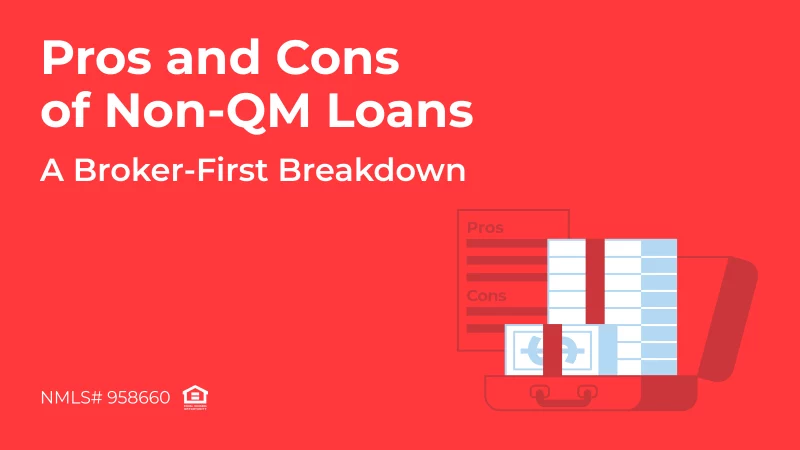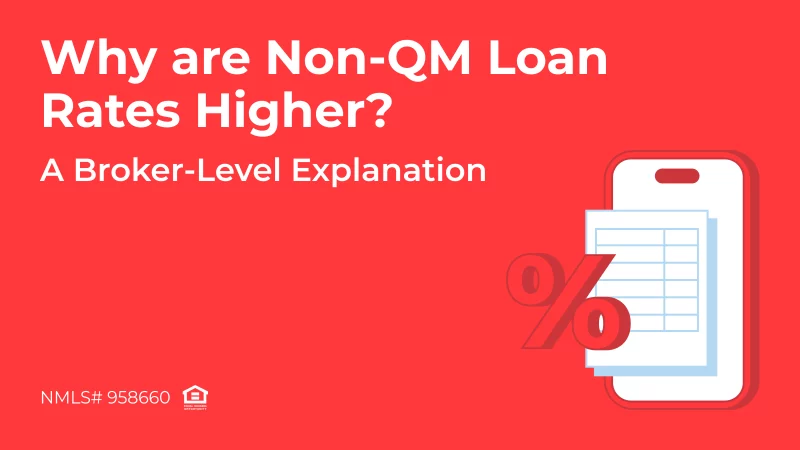Becoming a mortgage broker is a rewarding career path that potentially offers financial and personal fulfillment. Mortgage brokers play a crucial role in the real estate industry, being intermediaries between borrowers and lenders to secure the best mortgage terms for their clients. If you’re interested in a career that combines finance, real estate, and customer service, becoming a mortgage broker might be the perfect fit for you. In this comprehensive guide, we will answer the question, “How do you become a mortgage broker?” and provide detailed steps, qualifications, and skills required to succeed in this profession.
What Is a Mortgage Broker?
Definition of a Mortgage Broker
A mortgage broker is a licensed professional who acts as an intermediary between borrowers and lenders to secure the best possible mortgage terms. Unlike loan officers who work directly for a specific bank or lending institution, mortgage brokers operate independently or within a brokerage firm, giving them access to a wide range of loan products from various lenders. Their primary role is to assess clients’ financial situations, understand their mortgage needs, and find suitable loan options. Mortgage brokers guide clients through the entire mortgage process, from application to closing, ensuring all necessary documentation is completed accurately and on time. They negotiate with lenders on behalf of clients to obtain favorable loan terms and rates.
Key Responsibilities and Duties
Mortgage brokers are responsible for:
- Assessing clients’ financial situations and determining their mortgage needs.
- Researching and comparing different loan products to find the best rates and terms.
- Assisting clients with the loan application process and gathering necessary documentation.
- Communicating with lenders on behalf of clients to negotiate loan terms and conditions.
- Providing advice and guidance throughout the mortgage process to ensure a smooth transaction.
Difference Between Mortgage Brokers, Loan Officers, and Real Estate Agents
Looking for a suitable loan program?
Choose among 20+ programs and get
a detailed loan calculation
Loan Calculator
Programs
While mortgage brokers, loan officers, and real estate agents all play important roles in the real estate industry, their responsibilities and functions differ significantly:
- Mortgage Brokers. Work independently or for a brokerage to connect clients with lenders and find the best mortgage products.
- Loan Officers. Employed by banks or lending institutions to process loan applications and approve or deny loan requests based on their institution’s criteria.
- Real Estate Agents. Assist clients in buying, selling, and renting properties. They do not handle the mortgage process but work closely with mortgage brokers and loan officers to facilitate property transactions.
Steps to Become a Mortgage Broker
Step 1: Obtain a High School Diploma or GED
The first step in becoming a mortgage broker is to complete your high school education or obtain a GED. This foundational education is essential as it demonstrates your ability to complete basic academic requirements and is often a minimum requirement for further education and licensure.
Step 2: Pursue Further Education (Optional but Beneficial)
While not always mandatory, pursuing higher education can be highly beneficial for aspiring mortgage brokers. Degrees in finance, business, economics, or related fields provide valuable knowledge and skills that can enhance your understanding of the mortgage industry and improve your career prospects. Courses in real estate, accounting, and marketing can also be advantageous.
Step 3: Complete Pre-Licensing Education
To become a licensed mortgage broker, you must complete pre-licensing education as mandated by your state. The Nationwide Mortgage Licensing System (NMLS) requires a minimum of 20 hours of coursework, which typically covers:
- Federal and state mortgage laws and regulations
- Ethical practices in mortgage lending
- Mortgage origination and underwriting standards
- Financial concepts and mortgage products
Step 4: Pass the NMLS SAFE Exam
After completing your pre-licensing education, the next step is to pass the SAFE Mortgage Loan Originator Test. This exam assesses your knowledge of mortgage laws, ethics, and practices. To prepare for the exam, consider the following tips:
- Study the NMLS test outline and focus on key topics.
- Use practice tests and study guides available online.
- Attend review courses or join study groups if possible.
The SAFE exam consists of two parts: a national component and a state-specific component. A passing score is typically 75% or higher.
Step 5: Apply for a Mortgage Broker License
Once you pass the SAFE exam, you need to apply for a mortgage broker license in your state. The application process varies by state but generally includes:
- Submitting an application through the NMLS platform
- Paying the required application fees
- Undergoing a background check and fingerprinting
- Obtaining a surety bond (if required by your state)
The NMLS platform is a centralized system that streamlines the application process and ensures compliance with state and federal regulations.
Step 6: Gain Experience
Gaining practical experience is crucial for building a successful career as a mortgage broker. You can start by joining an established brokerage to learn the ropes and build your professional network. Alternatively, if you have the resources and experience, you can start your own brokerage. Building a solid reputation and developing relationships with lenders and clients will be key to your success.
Step 7: Continuing Education and License Renewal
Continuing education is essential for staying up-to-date with industry changes and maintaining your mortgage broker license. Most states require brokers to complete a certain number of hours of continuing education annually or biannually. This education covers updates in mortgage laws, ethical practices, and industry trends. Renewing your license on time ensures you remain compliant and can continue practicing legally.
Skills and Qualities of a Successful Mortgage Broker
Attention to Detail
Mortgage brokers must meticulously review loan documents and financial statements to ensure accuracy and compliance. Attention to detail helps prevent errors and ensures smooth transactions for clients.
Interpersonal Skills
Building strong relationships with clients and lenders is critical for a mortgage broker’s success. Effective communication, empathy, and active listening help establish trust and foster long-term relationships.
Patience and Persistence
The mortgage process can be complex and time-consuming. Patience and persistence are essential traits for handling client queries, negotiating with lenders, and navigating any obstacles that arise during the loan process.
Negotiation Skills
Securing the best loan terms for clients requires strong negotiation skills. A successful mortgage broker can effectively advocate for their clients’ needs and negotiate favorable terms with lenders.
Organizational Skills
Managing multiple clients and their respective documentation requires excellent organizational skills. Keeping track of deadlines, paperwork, and client communications ensures a smooth and efficient workflow.
Benefits of Becoming a Mortgage Broker
Lucrative Income Potential
Mortgage brokers typically earn a commission based on the loan amount they secure for their clients. This commission-based earnings structure offers significant income potential, especially for brokers who build a large and loyal client base.
Flexibility and Independence
Many mortgage brokers enjoy the flexibility and independence that come with the profession. Opportunities for self-employment and the ability to set your own working hours make this career appealing to those seeking a better work-life balance.
Personal Fulfillment
Helping clients achieve their homeownership dreams can be incredibly rewarding. Mortgage brokers play a vital role in one of the most significant financial decisions in their clients’ lives, providing a sense of personal fulfillment and satisfaction.
Challenges and Considerations
Market Fluctuations
The mortgage industry is influenced by economic conditions and market fluctuations. Changes in interest rates, housing market trends, and economic stability can impact a broker’s business. Staying informed and adaptable is key to navigating these challenges.
Regulatory Changes
Mortgage brokers must stay updated with federal and state regulations to ensure compliance. Regulatory changes can affect licensing requirements, lending practices, and the overall mortgage process, requiring brokers to continuously educate themselves.
Client Management
Handling difficult clients and complex cases can be challenging. Developing strong problem-solving skills and maintaining a professional demeanor is essential for managing client expectations and resolving issues effectively.
Conclusion
Have questions about our services?
Get answers in 30 minutes!
Our account executives are ready to provide all the details you need.
Contact Us Now
Becoming a mortgage broker requires dedication, education, and a commitment to ongoing learning. By following the steps outlined in this guide—starting with obtaining a high school diploma, pursuing further education, completing pre-licensing courses, passing the NMLS SAFE exam, and applying for a license—you can set a strong foundation for success in this field. Gaining experience, either by joining an established brokerage or starting your own, and continuing your education to stay updated with industry changes, are essential steps to building a reputable career.
The benefits of becoming a mortgage broker make it a highly appealing career. If you’re ready to try, leverage the resources and support available through mortgage lender platforms like A&D Mortgage to enhance your chances of success. Start your path to becoming a mortgage broker today us!



